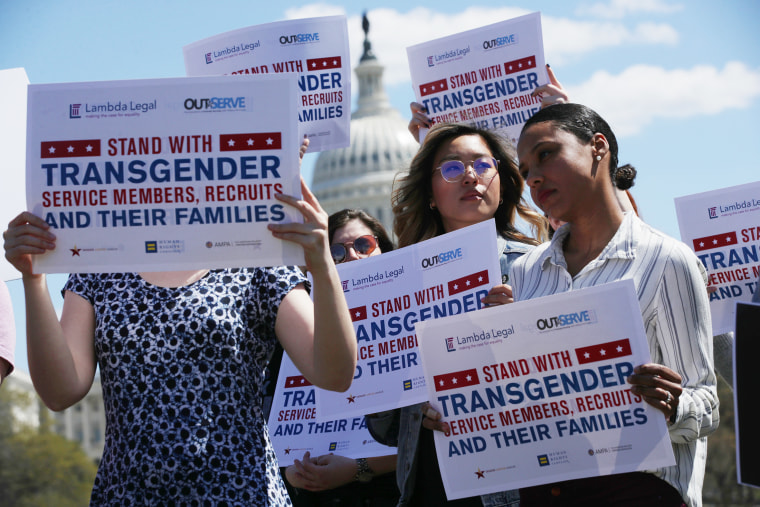California Releases Master Plan for Aging Annual Report and New Initiatives for 2025-26
WHAT YOU NEED TO KNOW: The fourth Master Plan for Aging (MPA) annual report highlights California’s leadership and progress in helping hundreds of thousands of people aged 50 and over get more affordable health care and home care and live in inclusive and safe communities. The report covers accomplishments achieved in year four of California’s nation-leading 10-year plan to help all people, families, and the economy thrive through longer lives.
SACRAMENTO – Today, the California Department of Aging (CDA) released a new report detailing 81 Master Plan for Aging (MPA) initiatives designed to build momentum and drive results for older Californians over the next two years. The MPA, California’s groundbreaking 10-year blueprint for aging and disability services that has become a national model, continues to be a catalyst to empower older adults, Californians with disabilities, and caregivers, according to the new report on its progress in 2024. Developed in 2021, today’s efforts also highlight the state’s commitment to support under-represented older populations, such as LGBTQIA+ older adults, people who are vulnerable in natural disasters like wildfires, families impacted by dementia, people who are isolated, unhoused older adults, and people with disabilities.
The recent wildfires in Southern California reinforce the importance of planning and preparing for a rapidly growing aging population, which the MPA has highlighted over the past four years.
“Ongoing and much-appreciated partnerships with stakeholders, philanthropy, the Legislature, and Governor Newsom’s administration are helping build the aging network of the future,” said Kim Johnson, California Health & Human Services Agency Secretary. “A person-centered, data-driven, equity-focused Master Plan for Aging is a robust tool to advance the health and well-being of all older adults, people with disabilities, and caregivers. This report is a strong accountability measure reflecting our commitment to transparency and outcomes.”
ABOUT THE MASTER PLAN FOR AGING: Governor Gavin Newsom launched the MPA four years ago to address the growing number of older Californians, a population that is increasing faster than the number of children for the first time in history. By 2030, 25% of the state’s population will be aged 60 or older. The MPA is a comprehensive 10-year effort to expand programs and improve access to care so all older adults, people with disabilities, and caregivers feel valued and have equitable opportunities to thrive.
The MPA outlines five Bold Goals to build a California for all ages and abilities by 2030: 1) Housing for All Ages & Stages; 2) Health Reimagined; 3) Inclusion & Equity, Not Isolation; 4) Caregiving That Works; and 5) Affording Aging. To learn more, visit mpa.aging.ca.gov.
KEY 2024 ANNUAL REPORT UPDATES
Progress has been made on all 95 initiatives from the past two years of MPA implementation. Included among 2024 achievements:
Delivering Housing: California is making progress to reduce chronic homelessness. Among many supports, the Community Care Expansion Program led by the California Department of Social Services (CDSS) has invested more than $243 million in 29 projects to date and anticipates building or preserving 7,000 beds or units supporting older adults and people with disabilities who are homeless or at risk of becoming unhoused. And since 2018, the Home Safe Program has served 15,615 older adults or dependent adults facing housing crises because of abuse, neglect, self-neglect, or financial exploitation.
Expanding Medi-Cal Health Insurance: More than 47,000 older adults and people with disabilities with the lowest incomes in California benefited directly from services provided by the California Advancing and Innovating Medi-Cal (CalAIM) program in the last 12 months. The expansion of Medi-Cal to all low-income Californians aged 50 and older has resulted in more than 364,000 additional older adults now receiving health care through Medi-Cal.
Advancing Emergency Preparedness: To help older adults and people with disabilities prepare for emergencies and stay safe during them, the Governor’s Office of Emergency Services (Cal OES) partnered with CDA and the Department of Rehabilitation (DOR) to develop California’s first-ever Emergency Preparedness Guide specifically for this population.
Training Caregivers: To address a growing need for caregivers for older adults and people with disabilities, CalGrows trained 30,884 direct care workers participating in 700 free training courses, paying $35 million in stipends and incentives. The In-Home Supportive Services Career Pathways Program through CDSS trained 58,505 unique learners in 27,030 trainings with $41.3 million paid in incentives.
Combating Loneliness: From January through November 2024, Friendship Line California — a free crisis intervention warmline providing emotional support for older adults and people with disabilities — assisted 117,673 callers in seven languages.
Closing the Digital Divide: To reduce isolation, CDA provided a combined 89,000 digital devices and related training to older adults and Californians with disabilities, who are among those most in need of social connection to remain healthy.
Groundbreaking LGBTQIA+ Study: CDA and its partners administered California’s first survey of LGBTQIA+ older adults, gathering baseline data to better understand and serve this population. Among the more than 4,000 respondents, 86% rated their quality of life as high.
Improving Mobility: With federal funding, the California Department of Transportation (Caltrans) awarded $51.7 million to more than 100 nonprofit organizations and public agencies for projects to improve mobility for and meet special transportation needs of older adults and people with disabilities.
Supporting Home and Community Living: The California Community Transition project from the Department of Health Care Services (DHCS) helped 2,152 people aged 65 and older transition out of skilled nursing, and CDA awarded 708 Bridge to Recoverygrants totaling $55.8 million to support Adult Day Centers and Program for All Inclusive Care for the Elderly sites. Both aim to help people continue living at home rather than in institutions.
Strengthening Retirement for All: In 2024, the CalSavers retirement savings program — for workers who previously had no way to save for retirement — reached $1 billion in assets. More than 50,000 employers have established 519,000 savers fund accounts since a 2019 pilot.
“In the last four years we have seen California invest billions of dollars to strengthen existing programs and launch new services to support older adults, people with disabilities, and caregivers,” said Fernando Torres-Gil, M.S.W., Ph.D., Director of the Center for Policy Research on Aging at UCLA, and Implementing the Master Plan for Aging in California Together (IMPACT) Committee member. “We’ve seen expansions in health care coverage, reforms to bridge clinical care with community living, and a renewed emphasis on behavioral health for older adults. California’s commitment to equity is evident by the progress we have made to date and remains a core value of our future Master Plan for Aging work.”
Visit the MPA Implementation Tracker for more information about progress made on these and prior initiatives.
2025-26 MPA INITIATIVES
The 81 priority initiatives for 2025-26 build upon the work of the MPA’s first four years while preparing for a future with increasing diversity and greater numbers of older Californians. Themes for new initiatives include:
- Establishing a framework to develop California’s first-ever Aging and Disability No Wrong Door system, including a pilot for a statewide consumer-facing website and contact center to improve navigation.
- Protecting Medicaid expansion with a focus on vulnerable, underserved populations, including older adults, people with disabilities, and caregivers.
- Addressing housing needs by elevating and advancing innovative public-private housing solutions.
- Improving access to programs supporting people in homes instead of institutions, including day programs for people with Alzheimer’s and related cognitive disorders.
- Expanding housing support for crime victims and survivors with specialized needs, including older adults, people with disabilities, LGBTQIA+, non-English speaking, and culturally or religiously marginalized populations.
- Expanding resources to help communities develop and implement age- and disability-friendly plans.
- Enhancing access to behavioral health and substance use disorder services for older adults.
- Bolstering California’s Health Insurance Counseling and Advocacy Program (HICAP) to meet increasing demand for Medicare counseling.
- Improving transitions of older adults and people with disabilities leaving incarceration.
“The Master Plan for Aging is a dynamic guide to help Californians live their best lives,” said CDA Director Susan DeMarois. “People of all ages deserve options for housing, availability of health care, and access to community connections that reduce loneliness and isolation — all things that the Master Plan delivers. The 2025-26 initiatives will carry that momentum over the next two years, strengthening California’s commitment to equity for all.”
WHY THIS IS IMPORTANT: By 2030, one in four Californians will be aged 60 or over, introducing new challenges and opportunities for families, communities, workplaces, health care systems, and the economy. California will report annually on investments and progress toward MPA goals, which guide policies and activities that support and empower older adults, people with disabilities, and caregivers. To learn more about the older adults in a specific county, including population and social and economic needs, visit the County Profiles section of the Data Dashboard for Aging.
ABOUT THE CALIFORNIA DEPARTMENT OF AGING: Under the umbrella of the California Health & Human Services Agency, CDA administers programs that serve older adults, adults with disabilities, family caregivers, and residents in long-term care facilities throughout the State. These programs are funded through the federal Older Americans Act, the Older Californians Act, State General Fund, and through the Medi-Cal program. To promote the Department’s goal of every Californian having the opportunity to enjoy wellness, longevity and quality of life in strong healthy communities, CDA actively collaborates with a wide array of partners on transportation, housing and accessibility, emergency preparedness and response, wellness and nutrition, falls and injury prevention, improving services to persons with dementia, reducing fraud and abuse, and many other issues. To learn more, visit aging.ca.gov.

